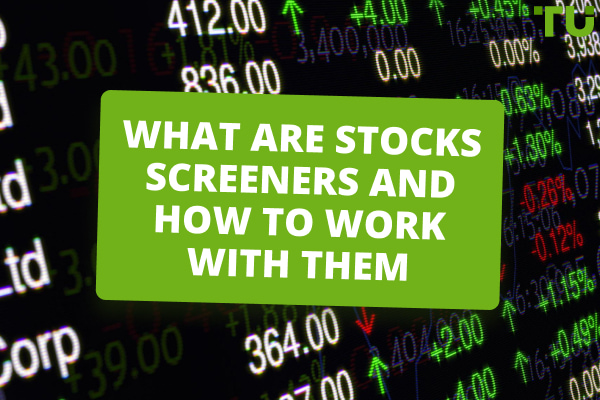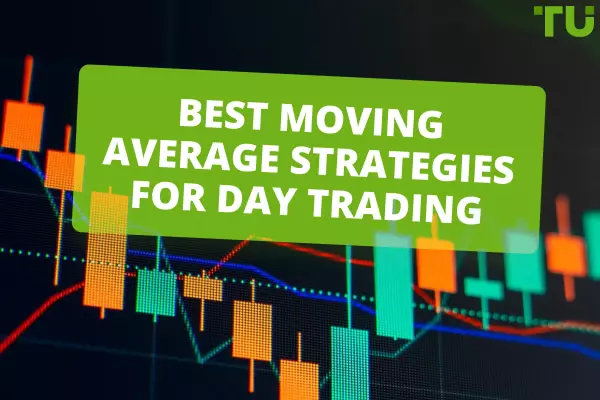Is It Better To Trade In The Morning Or At Night?
For stock trading, the best time is often the first hour after the market opens, when volatility is high. Cryptocurrency trading thrives 24/7 due to global markets, while the overlap of the London and New York sessions is optimal for Forex trading.
In the dynamic world of trading, the timing of your trades can significantly impact your success. Whether it's the morning dawn or the quiet of night, selecting the appropriate trading time and assets holds the key to maximizing your strategy's potential. TU expert explains the importance of timing and asset selection, illustrating how they can empower traders in achieving their objectives.
Is it a good idea to trade at night?
Engaging in night trading presents both prospects and obstacles contingent on variables like time zone, asset class, and strategy. Notably, Forex markets operate 24 hours a day during the trading week. Cryptocurrency market, on the other hand, remains active around the clock, while stock markets have specific hours.
However, traders should exercise vigilance due to potential liquidity constraints and wider spreads, especially during nighttime hours. A prudent approach involves assessing objectives and risk tolerance before embarking on nocturnal trading endeavors.
Is it a good idea to trade in the morning?
Trading in the morning can be advantageous for several reasons. During the opening hours of major financial markets, such as the US and European stock markets, there tends to be higher trading activity and volatility. This increased activity can provide more opportunities for traders to execute their strategies and capitalize on price movements. Additionally, important economic data releases often occur in the morning, which can lead to significant market movements. However, it's essential to consider your trading strategy, risk tolerance, and personal schedule when deciding whether morning trading aligns with your goals and circumstances. Perhaps, you also interested in information about the 10 AM rule in stock trading.
What is the best Forex pair at night?
Determining optimal nighttime forex pairs hinges on factors like risk tolerance and strategy. Forex, operating 24/5, offers long-term investment and short-term trading avenues. For elevated volatility, Asian and Oceanian crosses sans USD hold appeal, e.g., AUD/NZD, AUD/JPY, or NZD/JPY:
AUD/JPY: The Australian Dollar/Japanese Yen pair often displays intensified price fluctuations during nighttime sessions, making it appealing to traders seeking volatility
NZD/JPY: The New Zealand Dollar/Japanese Yen pair, another Asian cross rate, offers added trading chances during nighttime hours, aligning with a search for opportunities
AUD/NZD: The Australian Dollar/New Zealand Dollar pair presents opportunities, especially for those targeting non-USD cross rates, making it conducive for nighttime trading
It's also advisable to focus on currency pairs like EUR/USD, USD/JPY, and AUD/USD, recognized for their substantial market activity during the Assian session.
Best time to trade stocks, crypto and Forex
Best time to trade Forex
The most favorable time for Forex trading is during the overlap of the London and New York trading sessions. This period, usually around 8:00 AM to 12:00 PM EST, offers high liquidity and volatility, as these two major financial hubs are active simultaneously. Traders can benefit from increased trading volume and potentially significant price movements, making it an opportune time for executing Forex strategies.
Wednesday and Thursday stand out as optimal trading days in the Forex market due to increased activity. Additionally, Friday boasts good liquidity, making it a favorable day for trading as well. Learn also about Forex trading after the markets close in the TU article.
Best time to trade stocks
The optimal time to trade stocks is typically during the first hour after the market opens. This is when trading activity and volatility tend to be at their highest, creating opportunities for quick price movements. Traders can capitalize on news releases, earnings reports, and market sentiment shifts that often occur during this period.
For example, the US stock market usually operates from 9:30 AM to 4:00 PM Eastern Standard Time (EST), Monday through Friday. This period encompasses regular trading hours when most of the market activity, volatility, and trading opportunities are concentrated. The UK stock market sessions usually run from 8:00 AM to 4:30 PM Greenwich Mean Time (GMT), Monday through Friday.
Best time to trade crypto
Cryptocurrency trading is unique in that it operates around the clock, seven days a week. With markets spread across different time zones worldwide, traders can find active periods at various times.
Since the active integration of Bitcoin trading into the global financial system weekends have generally proven suboptimal for crypto trading due to minimal liquidity and volatility. Typically, trading gains momentum on Monday mornings as markets awaken. Notably, during New York stock trading sessions, particularly when crypto whales are active, the day sees heightened activity for buying and selling cryptocurrencies.
Best Forex brokers


FAQs
Is it better to trade during the day or night?
The choice between day and night trading hinges on strategy and asset class. Day trading capitalizes on daytime market activity, while night trading suits those wanting global access and flexible schedules in forex and crypto.
What time of day is best to trade?
Ideal trading times vary. For stocks, the initial hours after the market opens often provide higher volatility. Forex benefits from the London-New York overlap. Cryptocurrency trades around the clock due to its global nature.
What is the best time of the week to trade?
Mondays often see increased activity, as markets react to news over the weekend. Midweek can be steady. Avoid Fridays, when liquidity tends to decrease ahead of the weekend.
What is the 11am rule in trading?
The 11am rule suggests waiting until around 11 am before making trading decisions, allowing initial volatility to settle. This rule applies to stock markets and aims to avoid early-morning whipsaws.
Which days are not good for trading?
Days with major economic announcements, public holidays, or thin liquidity, like Christmas and New Year's, might not be conducive to active trading. Additionally, the last trading day of the month can exhibit unusual patterns due to portfolio adjustments.
Can I trade on the weekends?
Yes, you can trade on the weekends in certain markets, such as the cryptocurrency market, which operates 24/7. However, traditional stock markets and some forex markets are closed on weekends. It's important to consider the specific market and its hours before engaging in weekend trading.
Glossary for novice traders
-
1
Broker
A broker is a legal entity or individual that performs as an intermediary when making trades in the financial markets. Private investors cannot trade without a broker, since only brokers can execute trades on the exchanges.
-
2
Trading
Trading involves the act of buying and selling financial assets like stocks, currencies, or commodities with the intention of profiting from market price fluctuations. Traders employ various strategies, analysis techniques, and risk management practices to make informed decisions and optimize their chances of success in the financial markets.
-
3
Volatility
Volatility refers to the degree of variation or fluctuation in the price or value of a financial asset, such as stocks, bonds, or cryptocurrencies, over a period of time. Higher volatility indicates that an asset's price is experiencing more significant and rapid price swings, while lower volatility suggests relatively stable and gradual price movements.
-
4
Cryptocurrency
Cryptocurrency is a type of digital or virtual currency that relies on cryptography for security. Unlike traditional currencies issued by governments (fiat currencies), cryptocurrencies operate on decentralized networks, typically based on blockchain technology.
-
5
Forex Trading
Forex trading, short for foreign exchange trading, is the practice of buying and selling currencies in the global foreign exchange market with the aim of profiting from fluctuations in exchange rates. Traders speculate on whether one currency will rise or fall in value relative to another currency and make trading decisions accordingly.
Team that worked on the article
Andrey Mastykin is an experienced author, editor, and content strategist who has been with Traders Union since 2020. As an editor, he is meticulous about fact-checking and ensuring the accuracy of all information published on the Traders Union platform. Andrey focuses on educating readers about the potential rewards and risks involved in trading financial markets.
He firmly believes that passive investing is a more suitable strategy for most individuals. Andrey's conservative approach and focus on risk management resonate with many readers, making him a trusted source of financial information.
Dr. BJ Johnson is a PhD in English Language and an editor with over 15 years of experience. He earned his degree in English Language in the U.S and the UK. In 2020, Dr. Johnson joined the Traders Union team. Since then, he has created over 100 exclusive articles and edited over 300 articles of other authors.
Mirjan Hipolito is a journalist and news editor at Traders Union. She is an expert crypto writer with five years of experience in the financial markets. Her specialties are daily market news, price predictions, and Initial Coin Offerings (ICO).









